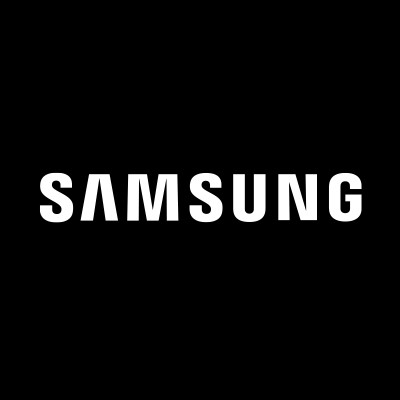The Smart Thermostat Revolution: A Heating Trend in the Tech World
July 8, 2024, 3:32 am

Location: United States, California, San Francisco
Employees: 10001+
Founded date: 1938
Total raised: $6.4B
The smart thermostat sector is ablaze with innovation, poised to ship a staggering 67.2 million devices by the year 2030. This market is not just warming up; it's scorching hot, making the transition from a mere novelty to an essential component of modern living. Energy management devices are the new darlings of the tech world, with smart thermostats, lights, and plugs leading the charge towards a more efficient and sustainable future.
In this rapidly evolving landscape, it's the households in Western Europe that are setting the pace for energy efficiency, closely followed by their North American counterparts. The rate at which these devices are being adopted hinges on a multitude of factors, including the proliferation of household Wi-Fi connectivity, competitive pricing strategies, and the ease of installation. Moreover, regulatory frameworks and eco-friendly incentives in Europe, particularly in countries like France, Germany, and Italy, are serving as catalysts for widespread adoption, creating lucrative opportunities in both retrofit and new build markets.
As legacy brands strive to fortify their offerings, they are increasingly turning to acquisitions of smaller, niche players to bolster their positions in the fragmented smart home industry. The current ecosystem lacks a dominant player, with a significant gap between product marketing, consumer adoption, and purchasing power. Vendors are now placing a premium on data privacy, security, sustainability, convenience, energy savings, and interoperability with existing devices to drive customer satisfaction and ensure long-term loyalty.
Among the various energy management devices, smart thermostats are poised to make the most significant impact on residential energy consumption, with a projected adoption rate exceeding 45% in Western European and North American households. Market leaders such as Google, Honeywell, Amazon, and Ecobee currently command over 60% of the global market share for smart thermostats, primarily targeting single-family residential homes. Other notable players in this space include Carrier, Schneider Electric, Netamo, Samsung, Siemens, and LeGrand & Tado GMbh.
As the smart home market continues to mature, consumers are becoming increasingly discerning, comparing product performance and user experience. Vendors must prioritize customer engagement, seamless installation processes, and the demonstration of real-world use cases. Embracing cutting-edge technologies like Artificial Intelligence (AI), Machine Learning (ML), and data analytics will be crucial for enhancing the user experience without intruding on privacy, ensuring that they stay ahead of the competition.
These insights are derived from ABI Research's comprehensive report on Smart Home Hardware for Energy Management, a part of the company's Smart Buildings and Consumer Technologies research services. ABI Research stands at the forefront of technology intelligence, bridging the gap between technology solution providers and end-market companies by offering exclusive research and expert guidance to drive successful technology implementations and customer retention.
In conclusion, the smart thermostat revolution is just the beginning of a broader transformation in the way we interact with our homes. The future is undeniably smart, and as the thermostat sector continues to evolve, it's clear that this heating trend in the tech world is here to stay.
In this rapidly evolving landscape, it's the households in Western Europe that are setting the pace for energy efficiency, closely followed by their North American counterparts. The rate at which these devices are being adopted hinges on a multitude of factors, including the proliferation of household Wi-Fi connectivity, competitive pricing strategies, and the ease of installation. Moreover, regulatory frameworks and eco-friendly incentives in Europe, particularly in countries like France, Germany, and Italy, are serving as catalysts for widespread adoption, creating lucrative opportunities in both retrofit and new build markets.
As legacy brands strive to fortify their offerings, they are increasingly turning to acquisitions of smaller, niche players to bolster their positions in the fragmented smart home industry. The current ecosystem lacks a dominant player, with a significant gap between product marketing, consumer adoption, and purchasing power. Vendors are now placing a premium on data privacy, security, sustainability, convenience, energy savings, and interoperability with existing devices to drive customer satisfaction and ensure long-term loyalty.
Among the various energy management devices, smart thermostats are poised to make the most significant impact on residential energy consumption, with a projected adoption rate exceeding 45% in Western European and North American households. Market leaders such as Google, Honeywell, Amazon, and Ecobee currently command over 60% of the global market share for smart thermostats, primarily targeting single-family residential homes. Other notable players in this space include Carrier, Schneider Electric, Netamo, Samsung, Siemens, and LeGrand & Tado GMbh.
As the smart home market continues to mature, consumers are becoming increasingly discerning, comparing product performance and user experience. Vendors must prioritize customer engagement, seamless installation processes, and the demonstration of real-world use cases. Embracing cutting-edge technologies like Artificial Intelligence (AI), Machine Learning (ML), and data analytics will be crucial for enhancing the user experience without intruding on privacy, ensuring that they stay ahead of the competition.
These insights are derived from ABI Research's comprehensive report on Smart Home Hardware for Energy Management, a part of the company's Smart Buildings and Consumer Technologies research services. ABI Research stands at the forefront of technology intelligence, bridging the gap between technology solution providers and end-market companies by offering exclusive research and expert guidance to drive successful technology implementations and customer retention.
In conclusion, the smart thermostat revolution is just the beginning of a broader transformation in the way we interact with our homes. The future is undeniably smart, and as the thermostat sector continues to evolve, it's clear that this heating trend in the tech world is here to stay.